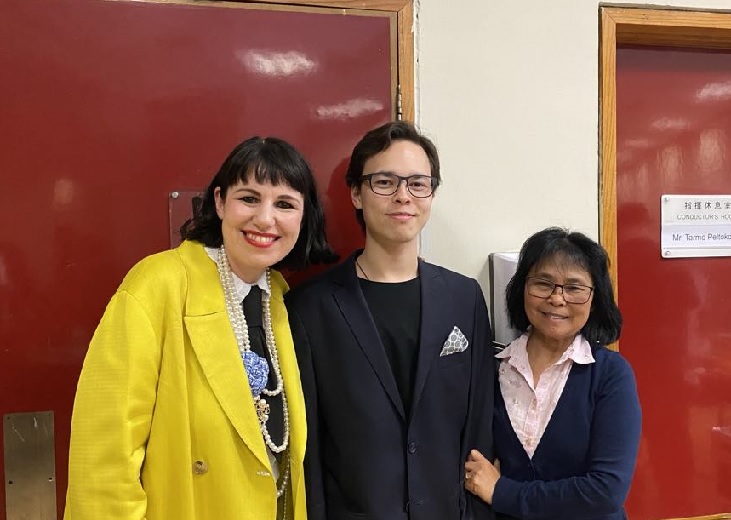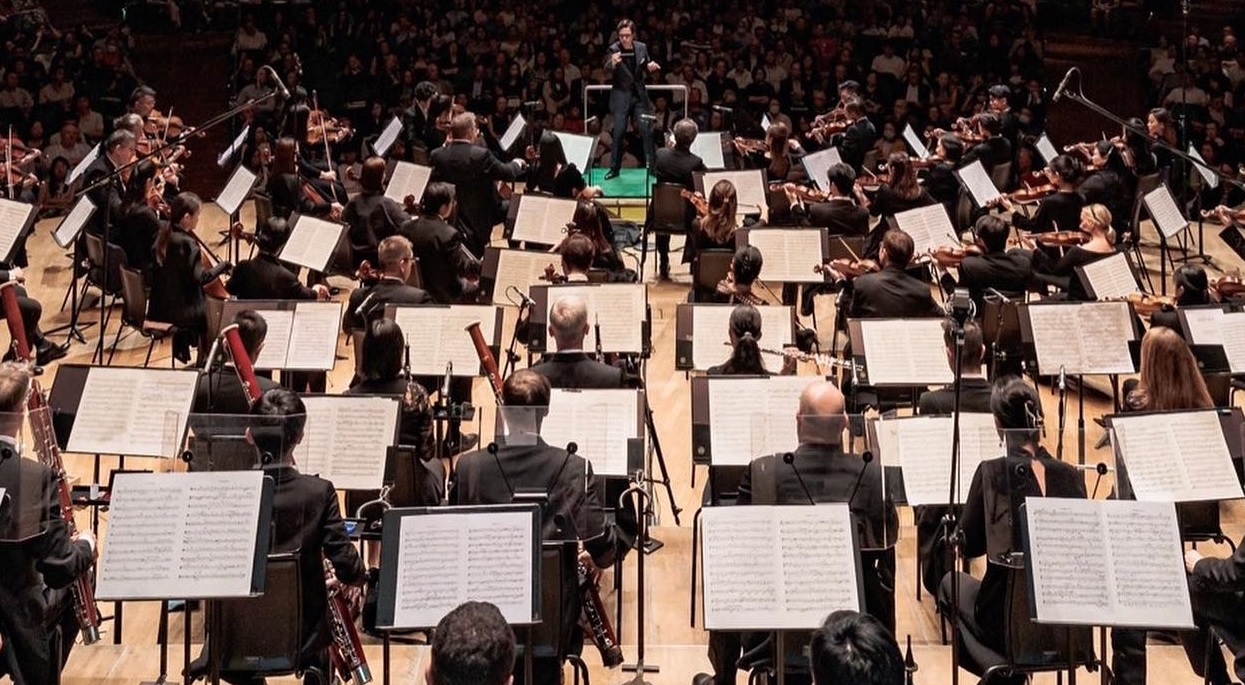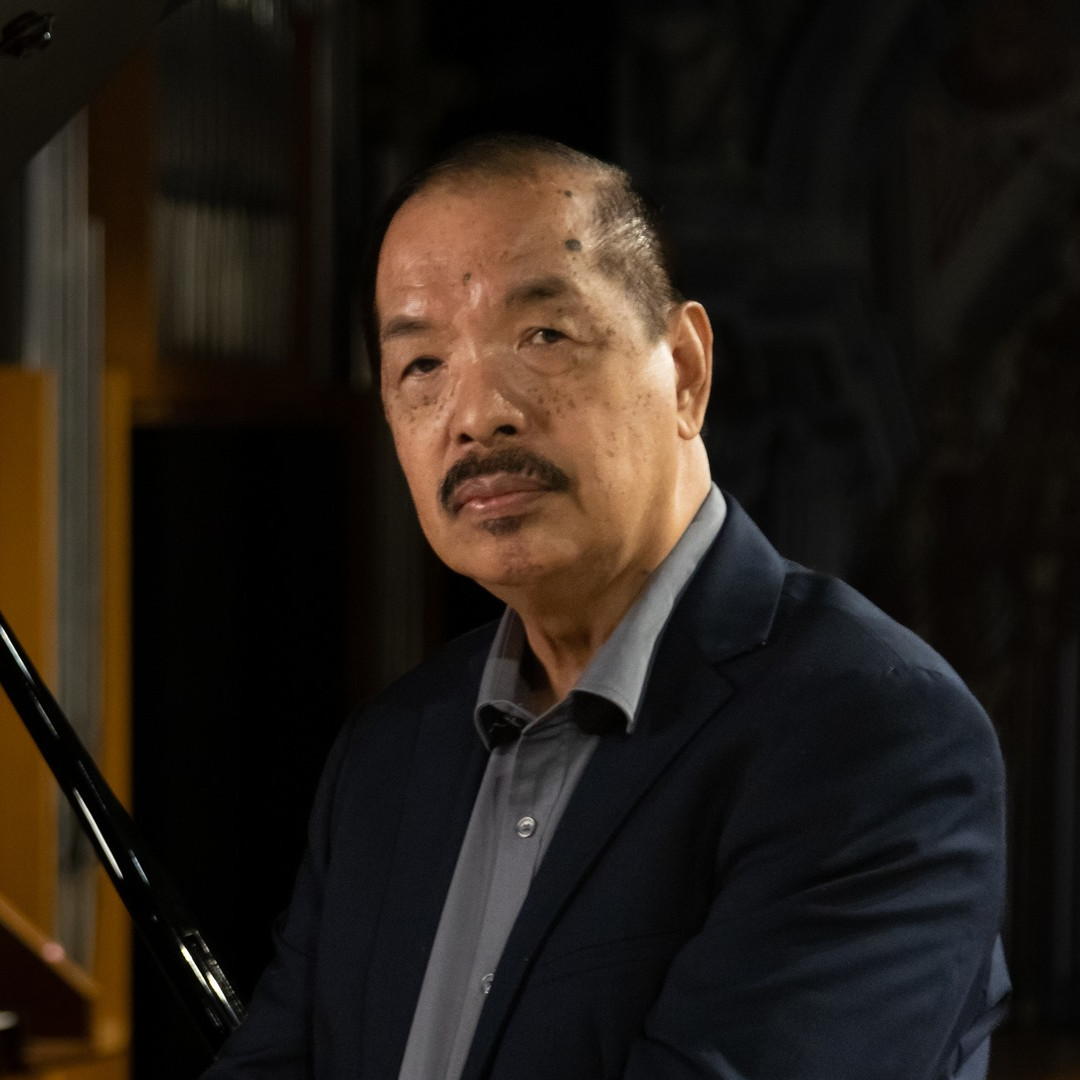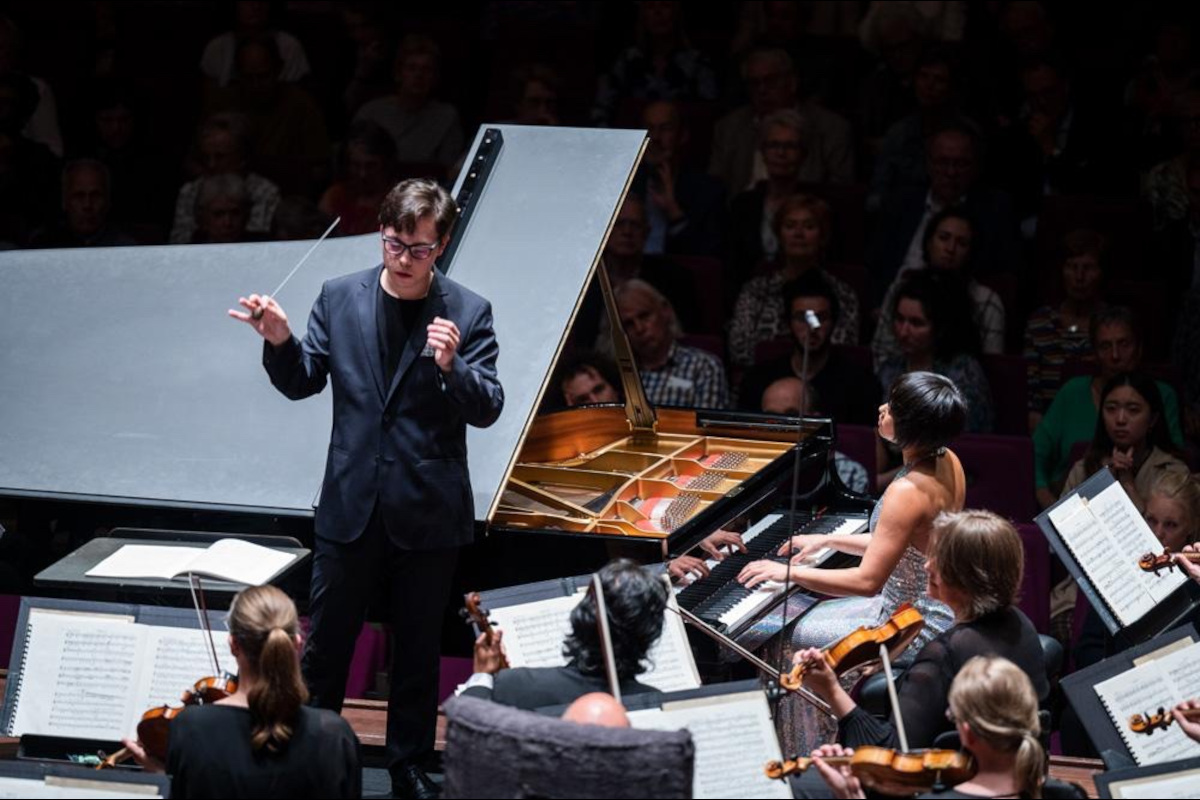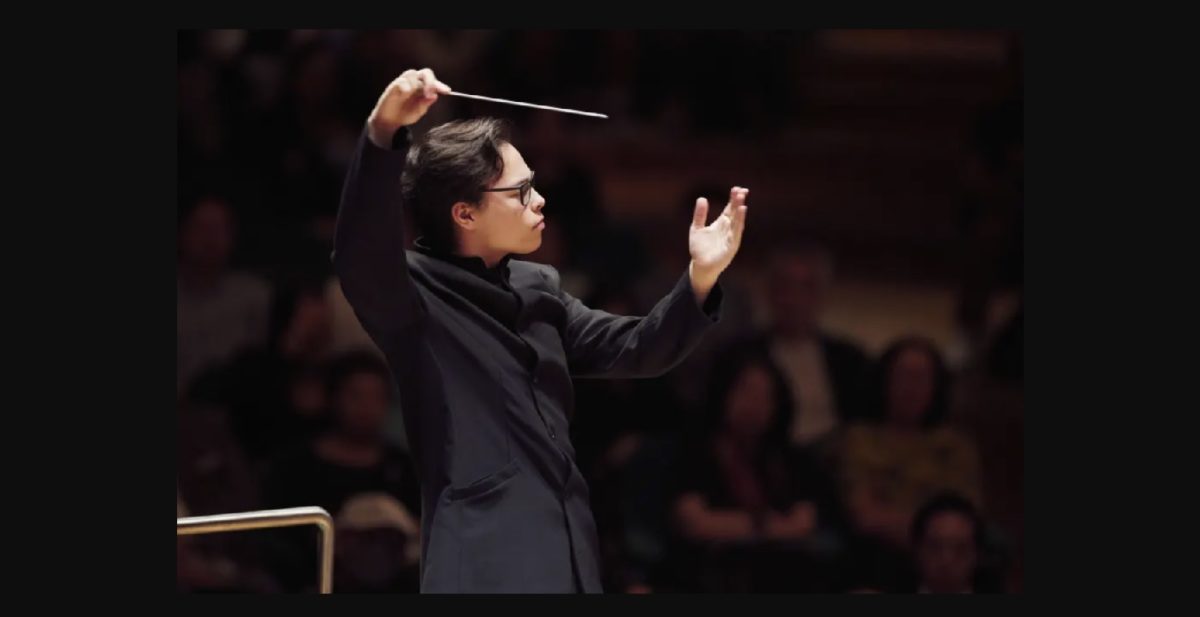When Typhoon Yagi (Enteng when it entered the Philippines) reared its ugly head on its way to Vietnam and Hainan, China on a Thursday morning, the Sept. 5 opening night of Hongkong Philharmonic had to be canceled and reset Friday afternoon.
At the Friday afternoon concert, the Sibelius violin concerto with Swedish soloist Daniel Lozakovitch had a grand entrance, a heart-felt middle movement and a ravishing finale.
Bruckner’s 9th Symphony soared as it did in three movements, its message not lost on Hong Kong audiences.
It once more re-asserted Filipino-Finnish conductor Tarmo Peltokoski as the youngest and most phenomenal music director of the HK Philharmonic.
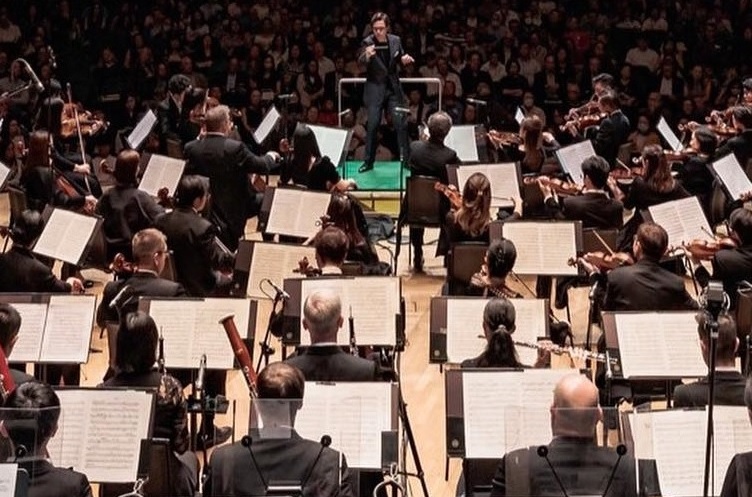
After the typhoon, a netizen posted a comment on FB saying that the Sibelius concerto and the Bruckner 9th Symphony were more powerful that Typhoon Yagi.
Having witnessed the HK Phil opening concert Friday afternoon, this writer can only wholeheartedly agree.
The concert also uncovered the extraordinary talent of Swedish violinist Daniel Lozakovitch who gave the Sibelius opus an enchanting patina.
(By coincidence, the Sibelius concerto was also in the program when Peltokoski debuted in Manila in 2019 with the Manila Symphony Orchestra with the then 15-year old Jeanne Marquez as soloist. After MSO’s Beethoven Fifth, I wrote, “A conducting star prodigy is born!)
With Peltokoski leading the HK Phil, the rapport with Lozakovitch was thoroughly mesmerizing and one could see orchestra members similarly inspired and performing with all their heart and soul.
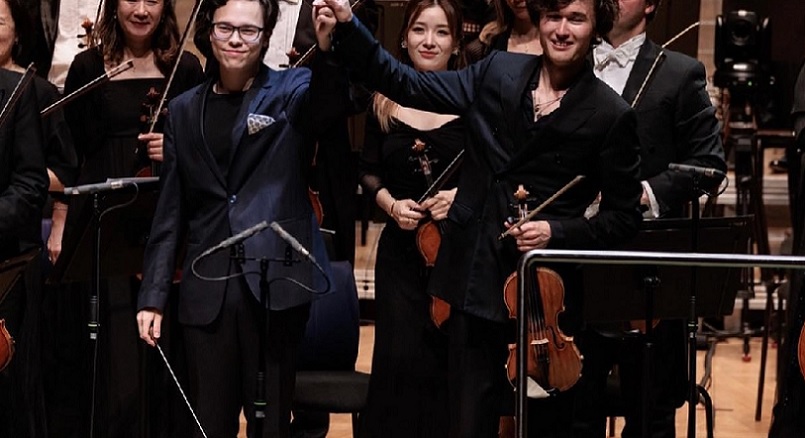
Tarmo’s performance impressed music critic Edward Sava-Segal who wrote,“An increasing number of music enthusiasts are recognizing the emergence of another remarkably talented Finnish conductor, even younger than the phenomenal Klaus Mäkelä (who also counts the legendary Jorma Panula among his mentors). Born in 2000, Tarmo Peltokoski is already associated with several prestigious ensembles. He currently serves as principal guest conductor of the Deutsche Kammerphilharmonie Bremen and the Rotterdam Philharmonic Orchestra and is the music director of the Latvian National Symphony Orchestra. In addition, he is set to become the music director of the Orchestre National du Capitole de Toulouse in the 2025/26 season and the Hong Kong Philharmonic Orchestra in 2026. The program featured two stylistically distinct yet equally renowned late Romantic masterpieces in D minor, premiered just one year apart: Bruckner’s Symphony No.9 in 1903 (in the now largely discarded Ferdinand Löwe version) and Sibelius’s Violin Concerto in 1904, in its original, unrevised form.”
The reviewer noted the young Swedish virtuoso was known for his impeccable technique and the subtlety with which he shapes every phrase. “Even before hearing the dark and mysterious orchestral introduction and the hauntingly lyrical first entry of the violin, the pressing question was how a collaboration between the soloist and the conductor – both of whom were teenagers not long ago – would illuminate the unique characteristics of Sibelius’s music and of this work in particular. Would they be able to convey the sense of melancholy rooted in a lifelong contemplation of the grandeur and solitude of the Finnish landscape? The fusion of emotion and austerity? And would they highlight the cohesiveness of the score?
Lozakovich’s approach was characterized not by power or a desire to dominate, but by great modesty, tonal beauty and lyrical introspection. His violin attempted to seamlessly integrate into the overall soundscape, especially in the first movement, where intertwining threads – intoned by violas, clarinets or bassoons – guided the musical flux in various directions. Colors and dynamics were delicately varied in the extended cadenza, which functions as a development section in the first Allegro, yet a sense of Nordic chill was insufficiently underlined. His silver-toned violin, full of warmth and feeling, imparted a fittingly rhapsodic, occasionally fragile quality to the Adagio’s music, while the rhythmic intricacies of the finale were dispatched with panache and bite. In a performance with just a few fleeting moments of hesitation in the coordination between soloist and ensemble, an objective Peltokoski supported his soloist with great care and rigor, while encouraging individual players to delve into the darker nuances of the musical landscape.”
Sava-Segal noted that Peltokoski’s leading the HK Phil with Bruckner’s last symphony was significant using the scholarly Nowak edition. “Swinging between rich harmonies and statements of great clarity, sparsely making use of available means, the first movement of the unfinished symphony was rendered with commendable cohesiveness by Peltokoski and the Hong Kong Philharmonic instrumentalists. While the bow-wielding musicians could have played with greater warmth, the balance between strings and winds was almost always well maintained. The feeling of relentless ascent towards an unseen summit, along with the Sisyphean connotations of steeply climbing one segment only to fall back, was effectively expressed. At the same time, the reappearance of several motifs that seemed to have exhausted their potential in new guises was clearly highlighted in a rendition that embraced unresolved dissonances. The tension-filled Scherzo, compressed between two massive slow movements, was propelled by a compelling rhythmic drive. While the outer segments seemed to convey a seeping menace from an unknown source, the middle Trio was imbued with a sense of longing and sadness, alluding to the final movement. Still sonically well-balanced and avoiding unnecessary pathos, the third movement was only a partially successful reconstruction of the sound cathedral that Bruckner meticulously and painstakingly built, with reverence, ‘ad maiorem Dei gloriam’. The conductor, likely too young to fully grasp the profound sense of piety that Bruckner – a deeply religious composer nearing his final days – embodied in this most wondrous and challenging Adagio, struggled to capture the full essence of the music. Besides allowing one to ‘teleport’ into a performance that would otherwise be impossible to attend, a carefully directed streamed rendition offers fascinating close-up access to the facial expressions and gestures of the musicians involved. While some instrumentalists appeared more engaged than others, an overall devotion to their future music director was clearly palpable. As for Peltokoski, the assuredness and sense of control he displayed in conducting two challenging works without a score were truly remarkable for such a young conductor.”
I had a pleasant chance meeting with Lozakovitch while he was on his way to The Peninsula before the concert. I told him of my interview with another Swedish artist, baritone Hakan Hagegard, who performed at the CCP in the early 80s. He was the star of the Bergman film adaptation of Mozart’s Magic Flute.
“Oh Bergman!” he sighed. It was obvious he was all respect for the iconic Swedish film and theater director.
Born in 2001, Lozakovitch was a winner of the 2016, Vladimir Spivakov International Violin Competition at age 9.
After his HK concert Friday night (Sept. 6), Peltokoski flew to London to conduct the BBC Symphony Monday night (Sept. 9) at the Royal Albert Hall in London.
Tuesday morning, London media enthused: “The BBC Symphony Orchestra, conducted by Finland’s young rising star Tarmo Peltokoski, delighted audiences with Shostakovich’s powerful Symphony No. 5 in D minor.”
Tarmo’s Filipino mother, Maria Flor Villagracia Saulon Peltokoski, told Vera Files after the HK concert: “We are thankful to God for giving us a wonderful son.”
